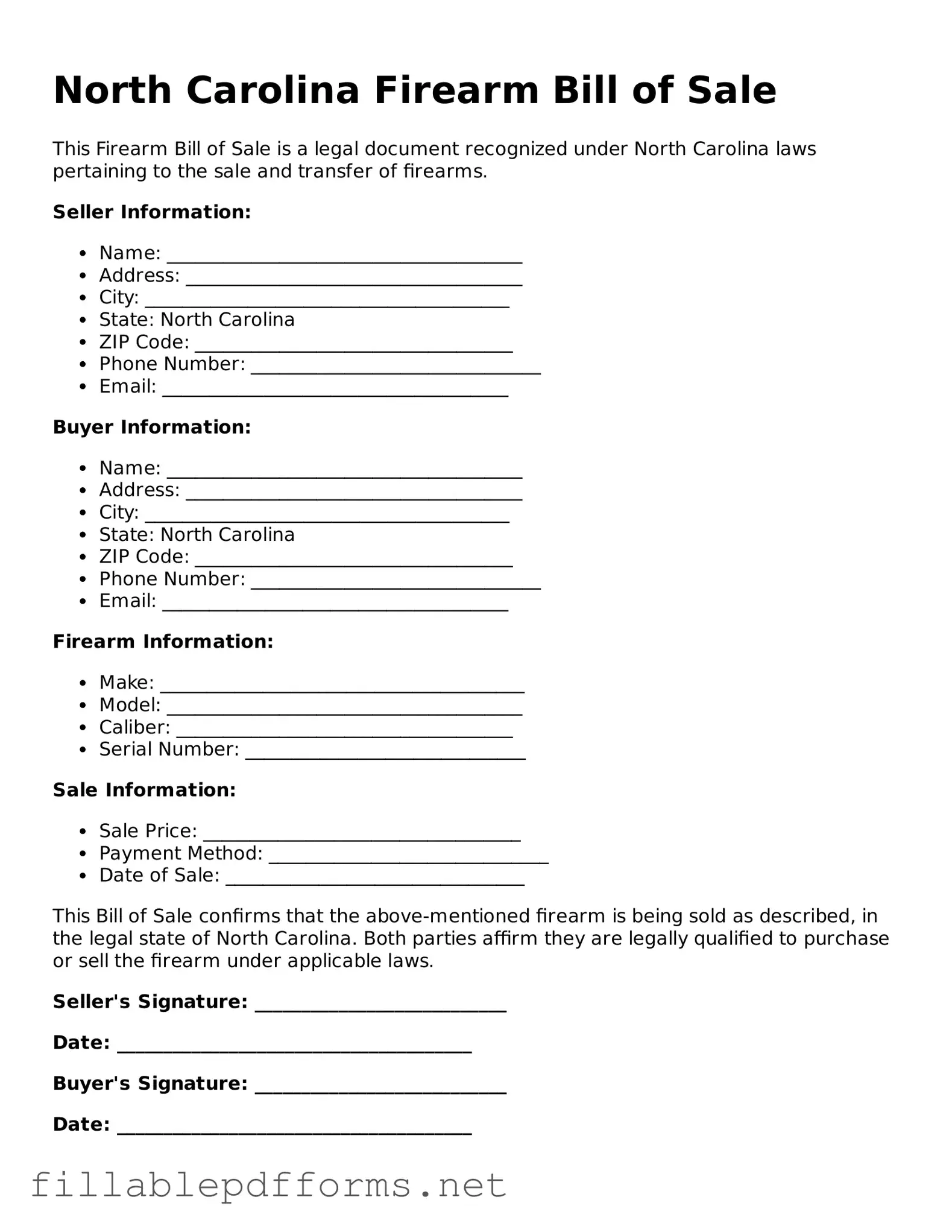Attorney-Verified Firearm Bill of Sale Form for North Carolina State
The North Carolina Firearm Bill of Sale form serves as a legal document that records the transfer of ownership of a firearm between a seller and a buyer. This form not only ensures that both parties have a clear understanding of the transaction but also provides a written record that can be important for legal purposes. Understanding its components and significance is essential for anyone involved in buying or selling firearms in North Carolina.
Launch Editor Here

Attorney-Verified Firearm Bill of Sale Form for North Carolina State
Launch Editor Here

Launch Editor Here
or
▼ Firearm Bill of Sale PDF
Almost there — finish the form
Complete Firearm Bill of Sale online fast — no printing, no scanning.